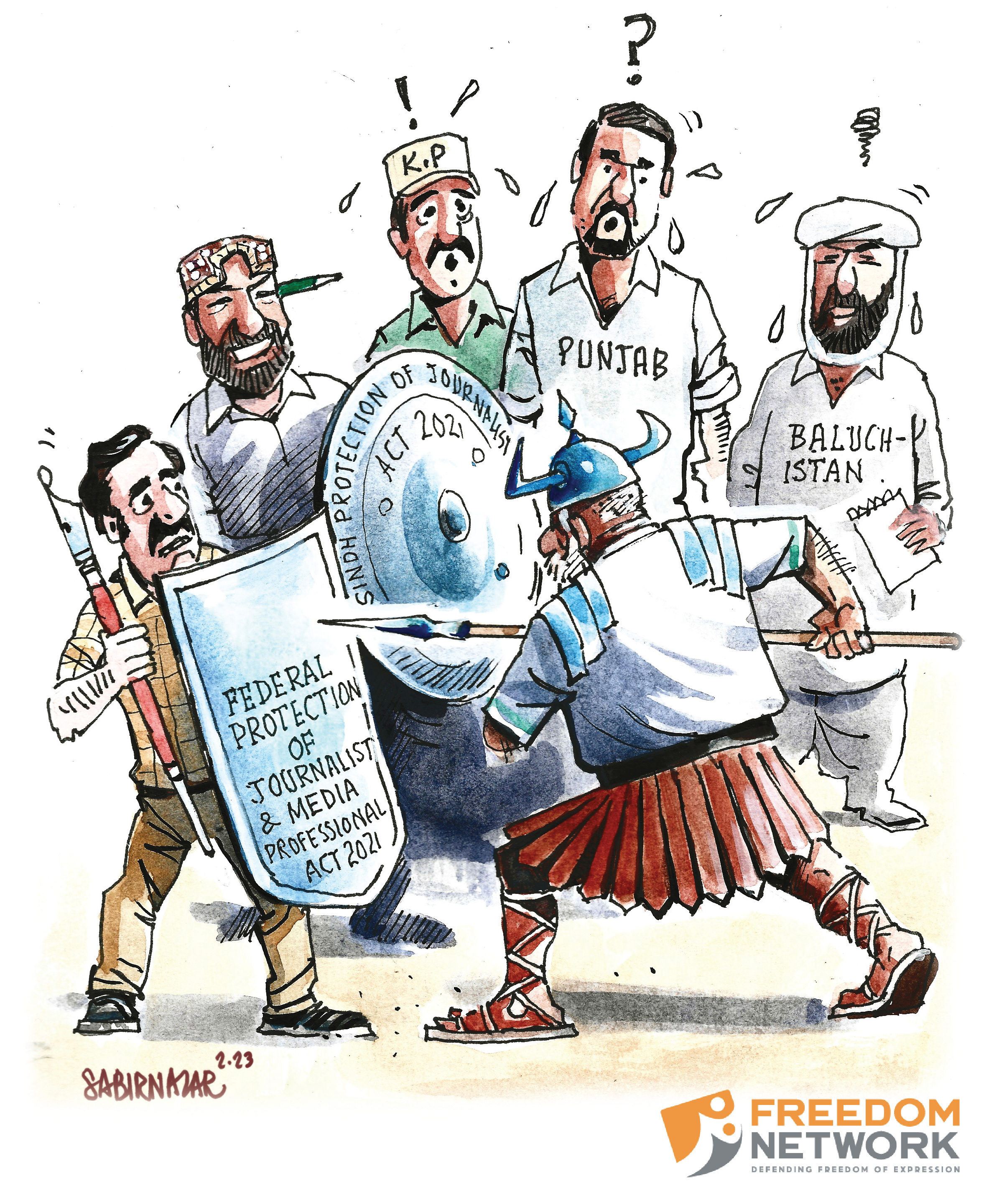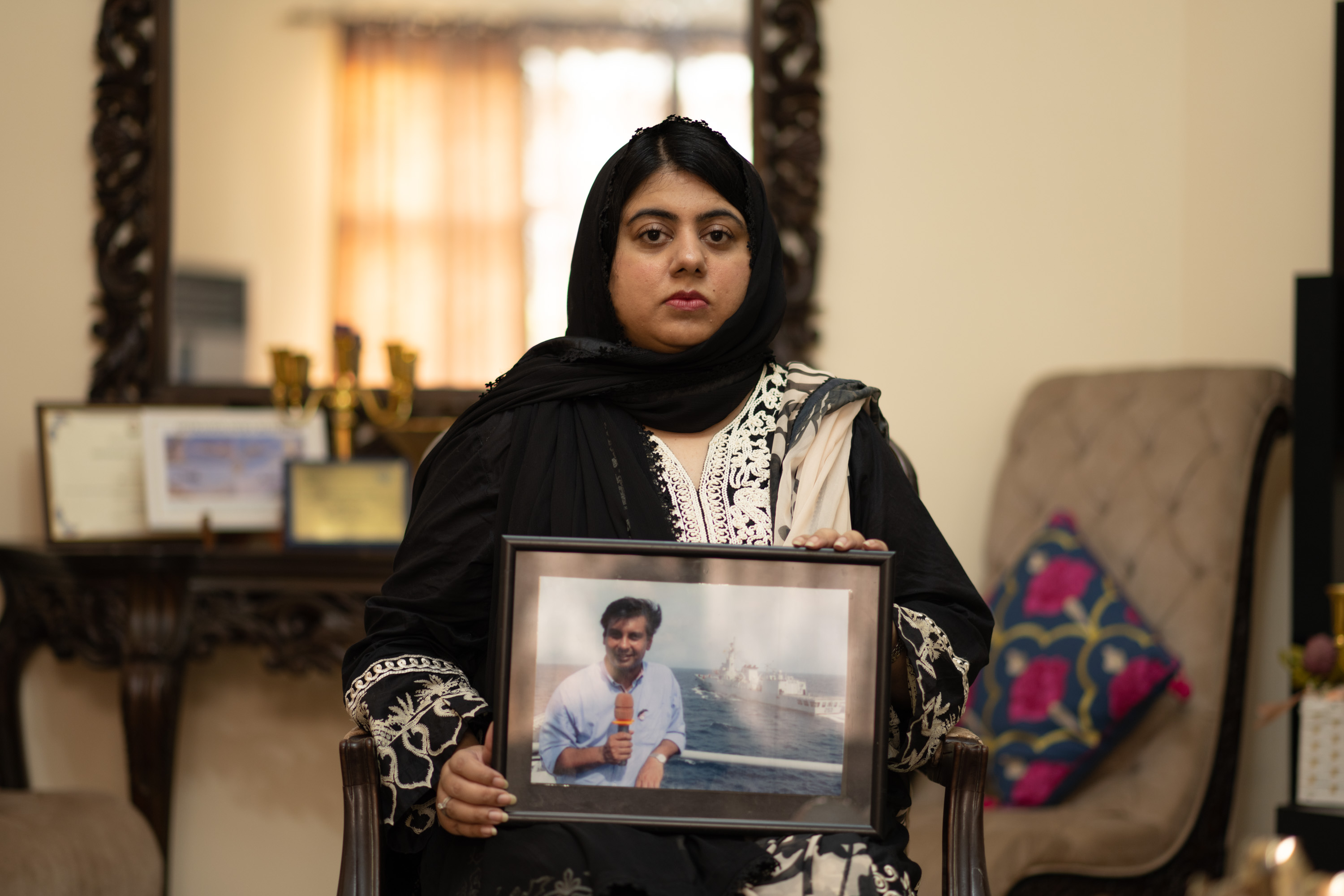Just months before the nation goes to general elections this year, mainstream as well as regional media is witnessing increased censorship brought together through court orders and coercive measures from other state institutions.
“This enforced censorship is unacceptable as it violates public’s fundamental rights to know and access information,” Freedom Network [FN], Pakistan’s first media watchdog organization, said 21 April 2018 in a Press Freedom Alert.
“This is a massive censorship and it will bring the country’s commitment to respecting Freedom of Press and Freedom of Expression into disrepute. We demand the media be allowed to work freely, independently and professionally,” it added.
Twisting arms to keep media off reporting Manzur Pashteen-led peaceful movement seeking rights within the constitutional framework of the country was highly condemnable, the Alert said.
“Such massive censorship, if continues until the general elections, will make election results controversial and the country’s democratic march will get weaker and the country’s image will take a harder hit.”
Journalists and editors decided to resist all forms of censorship after court orders and coercive measures forced newspapers and TV channels to censor articles and live telecast of former prime minister Nawaz Sharif for any criticism of judiciary and military besides reporting a new movement by Pashtoon youth seeking justice against enforced disappearances and extra-judicial killings of people in tribal areas and other parts of the country.
“We, the undersigned, working journalists, editors and media persons, express our serious concern and condemn the ongoing curbs on freedom of expression in Pakistan. Beginning with a crackdown against select media groups and banning the broadcast of various channels, there now is enhanced pressure on all media houses to refrain from covering certain rights-based movements,” the journalists, editors and freelancers signed the online petition and RSF is provided access to report it.
They went on to add: “Media house managements under pressure are dropping regular op-ed columns and removing online editions of published articles. One media house even asked its anchors to stop live shows. These examples represent a fraction of the kind of censorship taking place across the country in different ways. We strongly protest against all forms of censorship imposed on free media and stand united against it.”
Crackdown on media began with all of sudden rise of Pashtoon-led movement taking on strong military establishment to seek justice against disappearances of what its leaders say “hundreds of thousands of Pashtoon” during and after army operations in tribal areas and other parts of the country.
The powerful security establishment pressured TV channels in particular to censor protest meetings of Pashtoon Tahafuz Movement or “Pashtun Protection Movement.” Most channels completely blacked out its coverage as the Movement was attracting hundreds of thousands of people to its meetings everywhere. The blackout, however, damaged the public confidence in mainstream media, thus.
The Lahore High Court order on April 16, 2018, fueled the censorship when it took up several petitions against what petitioners called former prime minister Nawaz Sharif’s alleged “anti-judiciary” remarks after the Supreme Court of Pakistan disqualified him for life last year for not being “honest and truthful.”
The country’s top three analysts took to Twitter to say their articles were taken off for more than one reason.
“For the first time in over a decade, @thenews_intl has refused to publish my column. This unnecessary muzzling of debate is not healthy. Strong nations cultivate robust debate. Weak ones fear it. Pakistan is stronger than it is being allowed to be,” columnist Mosharraf Zaidi, who writes regulary for The News International and regular participant of TV talk-shows, tweeted after the newspaper took off his Op-Ed piece.

Babar Sattar, the country’s leading jurist and independent columnist and analyst, tweeted to say: “Media is banned from mentioning #PTM. Geo-Jang shut down/ordered not to touch sensitive topics. So my Saturday column couldn’t be published #TheAgeOfFreelyControlledMedia. The debate triggered by #PTM is about coercive relationship btw citizen & Pakistani state.”
The columnist uploaded his censored Op-Ed piece on his Twitter account.

What aggravated the situation was the suo moto action of Chief Justice Saqib Nisar of Supreme Court of Pakistan on media reports about the Lahore High Court order which the media reported as “ban on speeches of Nawaz Sharif and his daughter Maryam Nawaz Safdar.”
The chief justice wrote in his order while disposing off the notice: “There is nothing in the order which even remotely directs or obligates Pemra to ban Nawaz Sharif and Mariam or anybody else.”.
However, the TV channels were so cautious in their live and otherwise coverage that they muted Nawaz Sharif’s speech at a meeting in Islamabad on April 16, 2018, every time he was speaking about the higher judiciary and its alleged interference in executive affairs of the government after the Lahore High Court order.
Senior journalist Zahid Hussain wrote in his Op-Ed piece for Dawn newspaper that underscore the need for respecting press freedom in the country. “An unannounced censorship seems to have been imposed on the media. The restrictions have certainly not been imposed by the federal government or any regulatory body. Still, the media houses are compelled to follow a diktat. Opinion pieces violating ‘guidelines’ have reportedly been withdrawn by the management of some leading newspapers for fear of being penalised. Indeed, TV channels are much more vulnerable to the threat. And that fear is not unfounded,” he began his Op-Ed piece.
Pakistan Is Censoring Media Massively
- April 21, 2018
- 3:57 am
- No Comments
More from the News section
September 18, 2023
No Comments
July 26, 2023
No Comments
June 20, 2023
2 Comments
March 21, 2023
No Comments
August 30, 2022
No Comments

Resize text-+=

